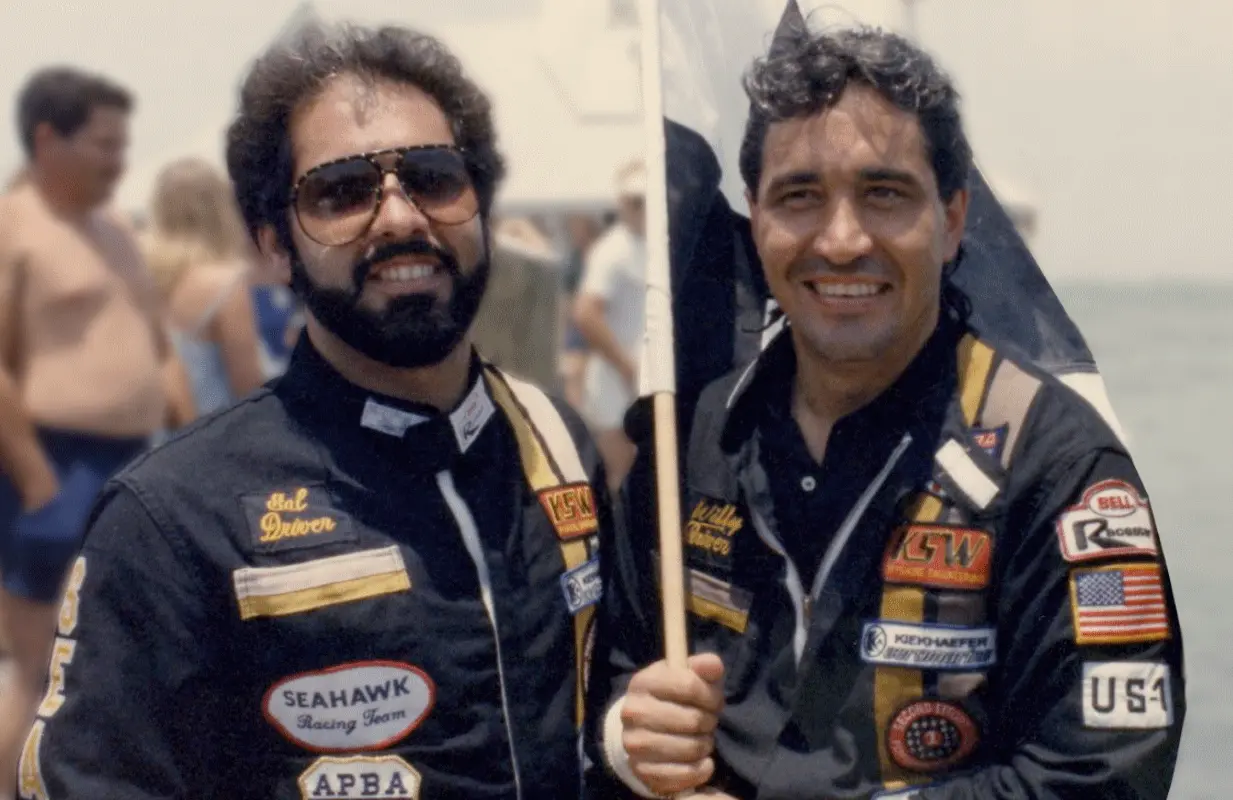Cocaine Cowboys: The Kings of Miami Is One Wild Ride
-
 Sal Magluta and Willy Falcon are the titular Kings of Miami in Netflix's new six-part Cocaine Cowboys docuseries. (Netflix)
Sal Magluta and Willy Falcon are the titular Kings of Miami in Netflix's new six-part Cocaine Cowboys docuseries. (Netflix)The editor-in-chief of the daily newsletter Best Evidence, Sarah D. Bunting knows a thing or two about true crime. Her weekly column here on Primetimer is dedicated to all things true-crime TV.
Billy Corben clearly has a passion for Miami drug culture. In addition to his new six-part docuseries Cocaine Cowboys: The Kings Of Miami, which drops on Netflix today, he's already directed three documentaries on the subject, starting in 2006 with the feature film Cocaine Cowboys.
The Kings Of Miami isn't about the rise of Miami as the country's cocaine capital generally, as the previous three docs were, but rather about "the Boys," Willy Falcon and Sal Magluta: high-school dropouts, womanizers, and world-class speedboaters who ran a massive drug-trafficking organization. Falcon and Magluta eventually got busted, only to stretch their notoriety out over decades, embroiling their attorneys, their families, friends, and state AND federal governments in trials, retrials, hung juries, fugitive pursuits, jury-tampering rackets, and more.
Their story has many twists, making for a wild ride of a series, especially in the first handful of episodes. Add to that Corben's evidently significant music budget; the natural charisma of the two central "antiheroes"; and the fact that dozens of other central figures in the story participated, and Cocaine Cowboys is a pretty impressive piece of work. (And the story really just won't quit: one of the key lieutenants in Falcon and Magluta's operation got arrested after his interview with the filmmaker for selling coke to an undercover DEA agent. The mother of that guy's child? She was on The Real Housewives of Miami. And she's not the only link to that show in the case.)
All of which is to say there is a LOT of material here, and almost all of it is compelling. True, many of the talking-head interviewees get longer-than-average screen time to set the scene and give historical context, but in addition to having first-hand intel, they're all natural storytellers — if I were the director, I wouldn't want to cut those back either. (Journalist Jim DeFede, who has written many longform pieces and done many TV spots on the case, acting out the direct and cross-examinations from the Boys' first trial is a particular highlight.)
Still, there are times where Corben seems to seize on a specific aspect of the case he thinks is underreported and sends us down the rabbit hole. A case in point is the specific plight of Marilyn Monachea, a longtime girlfriend of Magluta's who became a paralegal to circumvent jailhouse rules regarding visitors, and who helped him make payoffs to everyone from distributors to prison guards to co-defendants' families that ended up totaling seven million dollars. Monachea's story is fascinating and probably could sustain its own own feature doc, but the episode that's largely devoted to her feels a bit too enamored with its completeness and slows the series down in the process.
Truth be told, there are any number of diversions one could take in telling this story, making the fact that Corben gets his arms around the squirming whole of it all a feat. Cocaine Cowboys is a diverting series, one that I think aimed to make the case(s) and context of Falcon and Magluta do for Miami what Ezra Edelman et al. did for Los Angeles in OJ: Made In America. While it occasionally falls prey to more meandering tendencies, it's a great effort and one that's well worth watching.
Cocaine Cowboys: The Kings of Miami drops Wednesday August 4th on Netflix.
Sarah D. Bunting co-founded Television Without Pity, and her work has appeared in Glamour and New York, and on MSNBC, NPR's Monkey See blog, MLB.com, and Yahoo!. Find her at her true-crime newsletter, Best Evidence, and on TV podcasts Extra Hot Great and Again With This.
TOPICS: Cocaine Cowboys: The Kings Of Miami, Netflix, The Real Housewives of Miami, Billy Corben, True Crime
- Only a few of Netflix's true-crime docuseries have been hits of the 21 that have dropped so far this year
- Cocaine Cowboys: The Kings of Miami is full of "bat-bleep crazy developments"
- Ten New and Returning Shows to Watch on Netflix in August 2021
- Netflix releases the trailer for Cocaine Cowboys: The Kings Of Miami